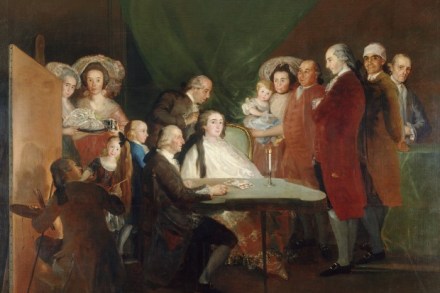The Last Kingdom is BBC2’s solemnly cheesy answer to Game of Thrones
The opening caption for The Last Kingdom (BBC2, Thursday) read ‘Kingdom of Northumbria, North of England, 866 AD’. In fact, though, an equally accurate piece of scene-setting might have been ‘Britain, Saturday teatime, the 1970s’. The series, based on the novels by Bernard Cornwell, has been described in advance as the BBC’s answer to Game of Thrones — and, as various thesps in furs and long beards began to attack each other with swords, it wasn’t hard to see why. Yet, apart perhaps from the level of the violence, the programme’s real roots seem to belong to less sophisticated (and less expensive) shows than that: the kind set firmly in




















